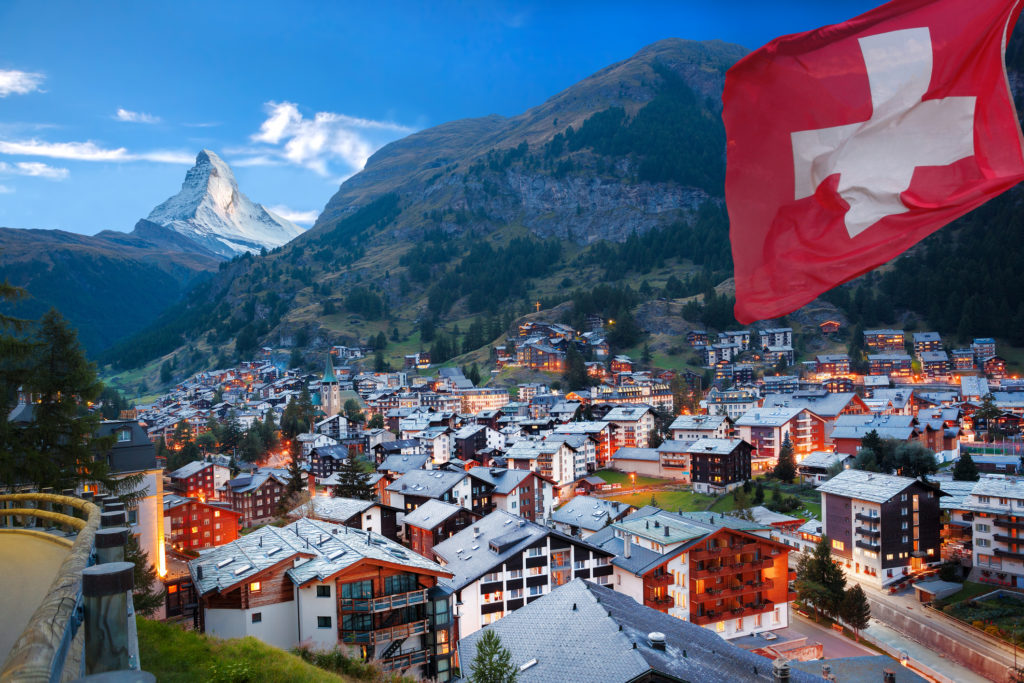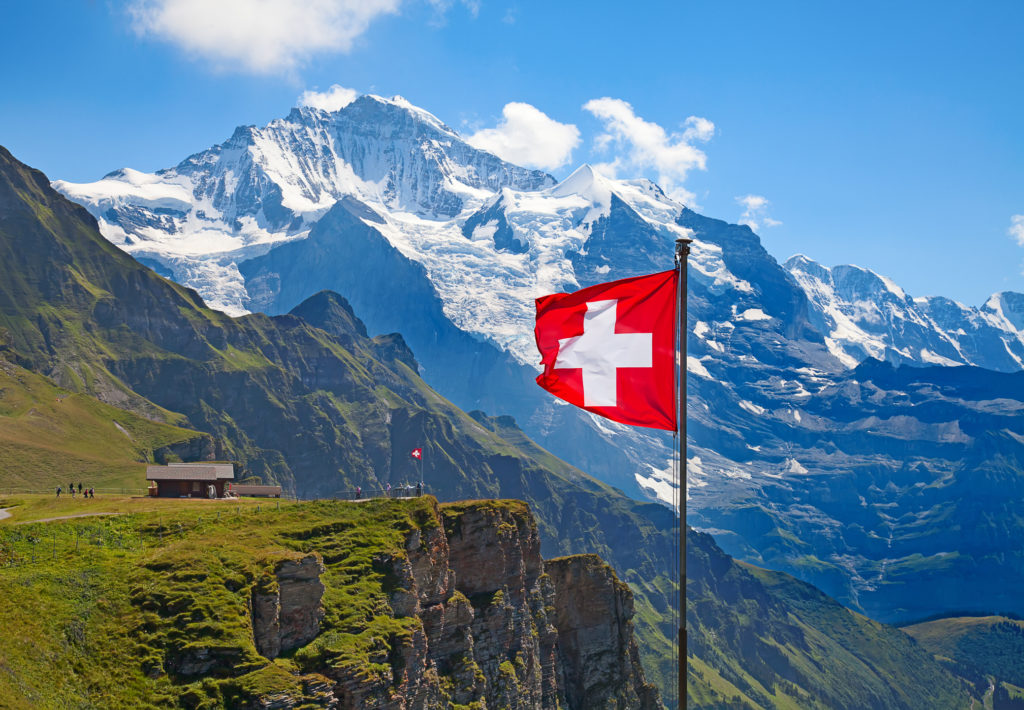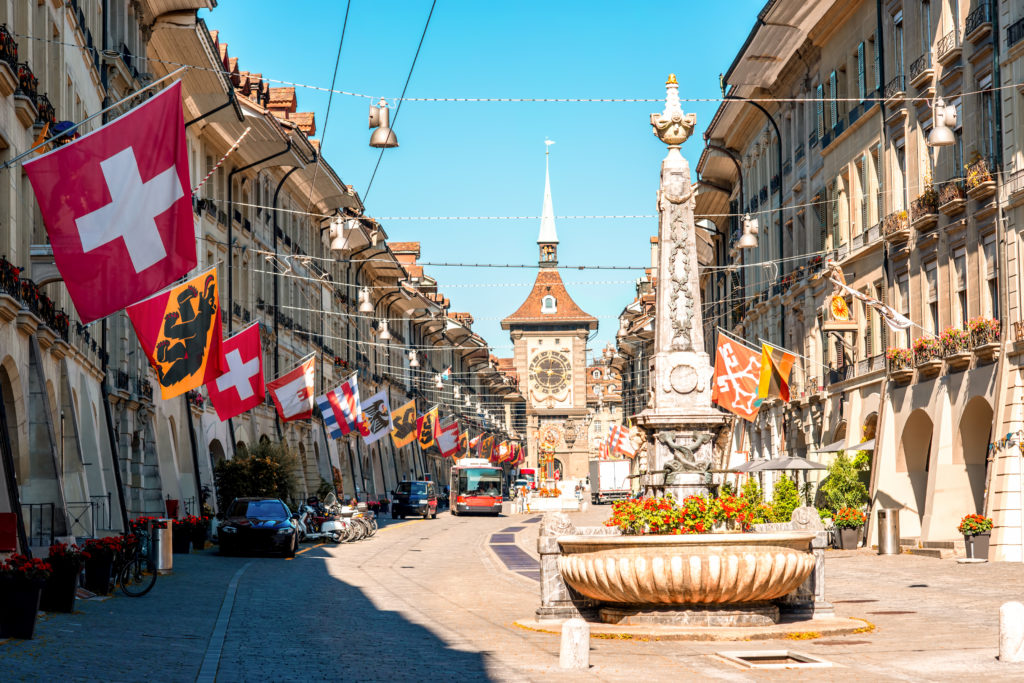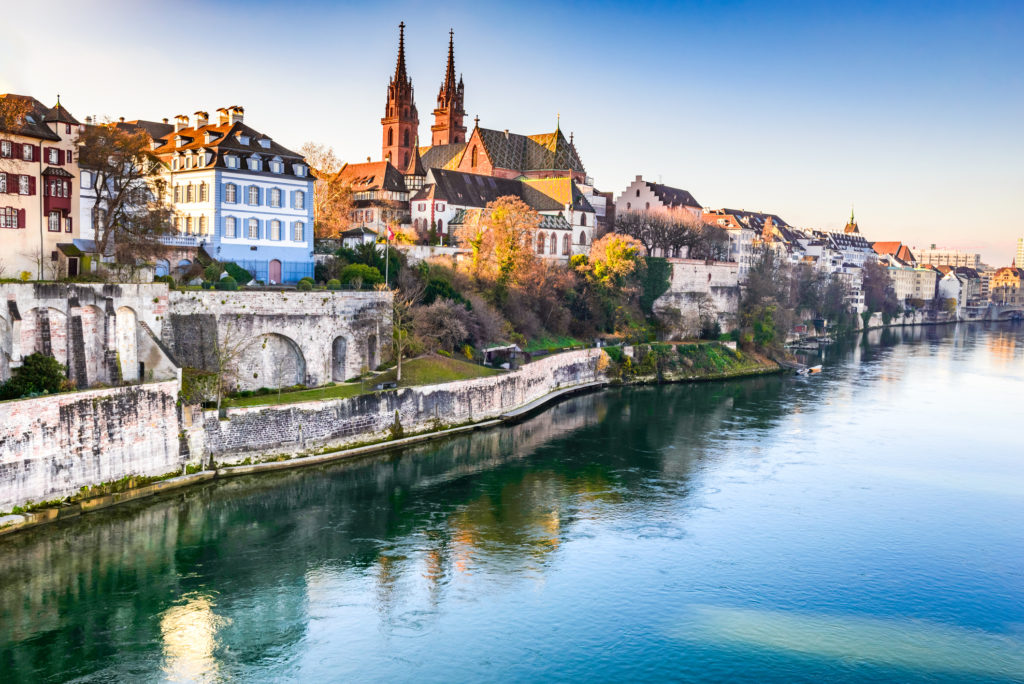Have you ever wondered how does Swiss German work? Is it a language? Or a dialect? We will tell you all about it in this post.
Swiss German is a set of various dialects spoken by around 5 million people in Switzerland and also other areas such as Northern Italy. The dialects, which are not recognised as an official language, differ in different areas of Switzerland and do not have a standard orthography. The dialect has furthermore some grammar differences with High German.
I have put up a set of facts that people usually get wrong about Swiss German, so keep reading to find out what I’m talking about!
Swiss German is not an oficial language in Switzerland
Some people find it confusing when they first arrive to Switzerland, but it is true that Swiss German is not an official language here. The official languages here are German, French, Italian, and Romansh. The country has four official languages that are spoken throughout the territory in different areas. Around 62% of Swiss speak German, while French is spoken by around 23%, and Italian around 8.2%. Romansh is a Romance language spoken by a small percent of the population (0.5%).
German as an official language is spoken in 17 cantons in Switzerland, with the biggest areas being Bern (where French is also an official language), Basel, Lucerne, Zug, and Zurich. This means education is taught in High German, which makes children fluent in both High and Swiss German, since they speak the former at school and most likely the latter at home and with friends.
Swiss German, therefore, is an everyday dialect spoken by people at home, with friends, and sometimes in work environments and even in some TV channels. It has been carried from generation to generation, and while all Swiss German speakers are fluent in High German, they do not use it in their daily lives as a form of communication with other Swiss German speaking people.

Swiss German is not a language
Well.. controversial, right? I would not specifically agree with this myself, but it is in fact true. And most Swiss people do not agree with this either.
The reason why Swiss German is not an official language here is basically because it is not a language in itself. Swiss German is a collection of Alemannic dialects derived mostly from High German, the language that the dialect is more similar to. This makes dialects from all over Swiss German-speaking Switzerland different from one another, although Swiss German speakers can all understand each other. This means that Swiss German from Basel and the one spoken in Zurich, for example, have some differences. Pronunciation, some words, and writing are some of the things that differ the most amongst the dialects.
Swiss German has only 5 million speakers
This is because Switzerland itself has only 8.5 million inhabitants. And although a good percentage of the country are also foreign residents, around only 5 million people are native in Swiss German.
It is also hard to estimate how many people learn it around the world. Since Swiss German is “only” useful if you live in Switzerland, and it does not have standard orthography, it is not supported by language learning apps. Swiss German is also not as widely available in language schools as High German, even here in Switzerland.
Swiss German is not only spoken in Switzerland
Although it may sound confusing, it is true! Swiss German, besides being the main dialects in German-speaking Switzerland, is also spoken in some small areas of Northern Italy. This is due to the proximity of these villages to Switzerland, which makes them, in most cases, bilingual in Swiss German and Italian.

There are different variants of the Swiss German dialect
The fact that Swiss German is not an official language in itself allows for its dialects to form different variants. This means that Swiss German from Bern and Swiss German from Zurich, for example, are different.
Nonetheless, all Swiss German speakers can understand each other. Their differences lay mainly in pronunciation, as well as some words and expressions.
That said, it is actually quite hard for native High German speakers outside Switzerland to understand Swiss German, since pronunciation, grammar, and orthography are quite different from their mother tongue.
There is no standard orthography for Swiss German
This is what still surprises me after all these years. Swiss German has no standard orthography! This is also one of the reasons why Swiss German is not an official language in itself. This makes the dialect a spoken one instead of a written one.
While most Swiss people text in Swiss German with their relatives and friends, there is no standard way of doing so. It is very funny to see long time friends confused by their texting, since they might spell words quite differently. That is why it is not uncommon to see families texting in High German, although this is more common amongst older members of a family.
Swiss German grammar is different to the High German one
While a lot of people (including myself, I have to admit) complain about the difficulty of learning Swiss German, there are a couple of things that actually make it easier.
In the first place, Swiss German does not use the past simple tense. For that matter, the only past tense in Swiss German is present perfect, or Pärfekt. However, the past perfect tense can also be formed by adapting Pärfekt’s auxiliary verbs. I will write a detailed post about this soon, so stay tuned!
On the other hand, Swiss German does not have the genitive case, unlike High German. The genitive case indicates possession, that in Swiss German is constructed with the preposition von (written vo). For example:
- My mum’s house would be ‘S Huus vo minere Mueter‘, which translated to High German using the genitive case is ‘Das Haus meiner Mutter’.

Swiss German has words to refer to mid-morning and mid-afternoon snacks
Yes, it is true. The same way German is known for being a language that has words for every occasion and that can explain many feelings, Swiss German has these two special words that I love:
- ‘Znüni‘ means ‘at nine’. Nüni comes from neun, the word for number nine. It is used for a ‘second breakfast‘ or a snack people tend to have mid-morning, regardless if it is taken at 9 or a bit later.
- ‘Zvieri‘ comes from vier, the word for number four. It represents the same as ‘Znüni‘, although ‘Zvieri‘ is a snack taken mid-afternoon. When children go to school, they always bring ‘Znüni‘ and ‘Zvieri‘, if they stay until late.
The letter ß is not used in Swiss German
This is surprising to many that visit the country for the first time and, unlike in Germany, do not see the letter ß, which stands for a double ‘s’. Which is curious is that even official signs, which are written in High German, use a double ‘s’ instead of a ‘ß’.
For example, street names in Switzerland, as well as in Germany and Austria, have also the word ‘street’ on it. This way, ‘House street’ would be ‘Hausstrasse’. In Germany and Austria, it would be spelled ‘Hausstraße’ on a sign, while in Switzerland this ß is replaced by a ‘ss’, forming ‘Hausstrasse’.

Swiss German has also influence from the French language
This is mostly due to the proximity between Switzerland and France, and the fact that Switzerland itself has a wide French-speaking area. Some of the most common words in Swiss German derived from French are:
- Velo is used for bicycle, instead of a derivation of the German word Fahrrad.
- Merci is also used for thank you, as well as the German Danke.
- Salü or Sali are ways of informally saying hello, which come from the French Salut.